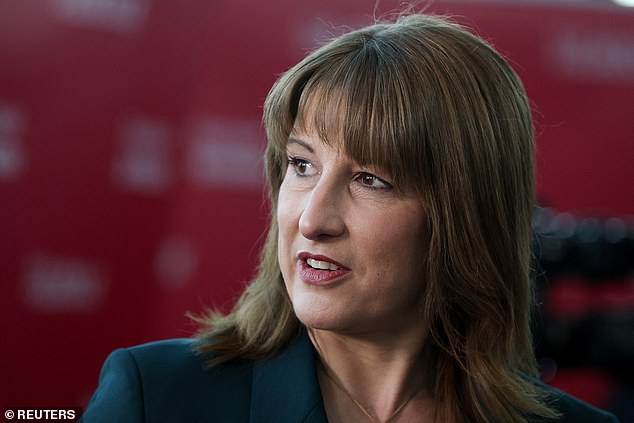Rachel Reeves has said official forecasts for the British economy should be published just once a year, rather than twice, to give the Government greater flexibility on fiscal policy.
The Chancellor told Times Radio on Monday she agreed with the International Monetary Fund’s suggestion that the Office for Budget Responsibility should only assess the Government’s so-called fiscal rules once a year.
It comes as the OBR is expected to downgrade its key productivity forecast this week, leaving Reeves on track to break her fiscal rules and making big tax rises inevitable.
The OBR has consistently overestimated long-term growth in productivity – the amount of output per hour worked – which has remained stubbornly low despite advances in technology.
Experts says even a tiny reduction in the OBR’s forecast would have a big impact on the public finances.
Reeves said: ‘The IMF have said that we should move to just one major fiscal event a year, and I agree with their recommendations.

Rachel Reeves will receive fresh OBR forecasts ahead of her 26 November Budget
‘And to be able to do that, we do need to change the way that the OBR do their forecasting. Two full forecasts a year make it harder to have that one fiscal event.’
The OBR provides forecasts on economic measures like GDP growth, public spending and debt before each fiscal event, and a judges whether the government is on track to meet its fiscal rules.
This includes calculating the ‘headroom’ the Chancellor has to adjust spending plans.
At the time of the March spring statement, Reeves had an estimated £9.9billion of headroom to meet the fiscal rules. This is low by historic standards.
The IMF says halving the number of OBR forecasts a year would give the Government greater flexibility in policy-making and reduce pressure to make rapid, often reversed, spending cuts following forecast changes.
The OBR was established in 2010 to provide markets with confidence that UK economic policy is underpinned by independent analysis.
It has been attacked by some MPs who accuse the OBR of being overly pessimistic and therefore unnecessarily hampering the capacity for Government’s to make changes to fiscal policy.
However, chair of the Treasury select committee of the House of Commons Meg Hillier warned earlier this month that to blame the OBR for the UK’s economic outlook ‘is like a farmer blaming Met Office weather forecasts for a weak harvest’.
She wrote in the Financial Times: ‘The OBR is not the architect of the government’s fiscal rules; it is the Chancellor who designs the rules she will need her economic plans to meet.’
DIY INVESTING PLATFORMS

AJ Bell

AJ Bell
Easy investing and ready-made portfolios

Hargreaves Lansdown

Hargreaves Lansdown
Free fund dealing and investment ideas

interactive investor

interactive investor
Flat-fee investing from £4.99 per month

InvestEngine

InvestEngine
Account and trading fee-free ETF investing
Trading 212
Trading 212
Free share dealing and no account fee
Affiliate links: If you take out a product This is Money may earn a commission. These deals are chosen by our editorial team, as we think they are worth highlighting. This does not affect our editorial independence.
This article was originally published by a www.dailymail.co.uk . Read the Original article here. .

